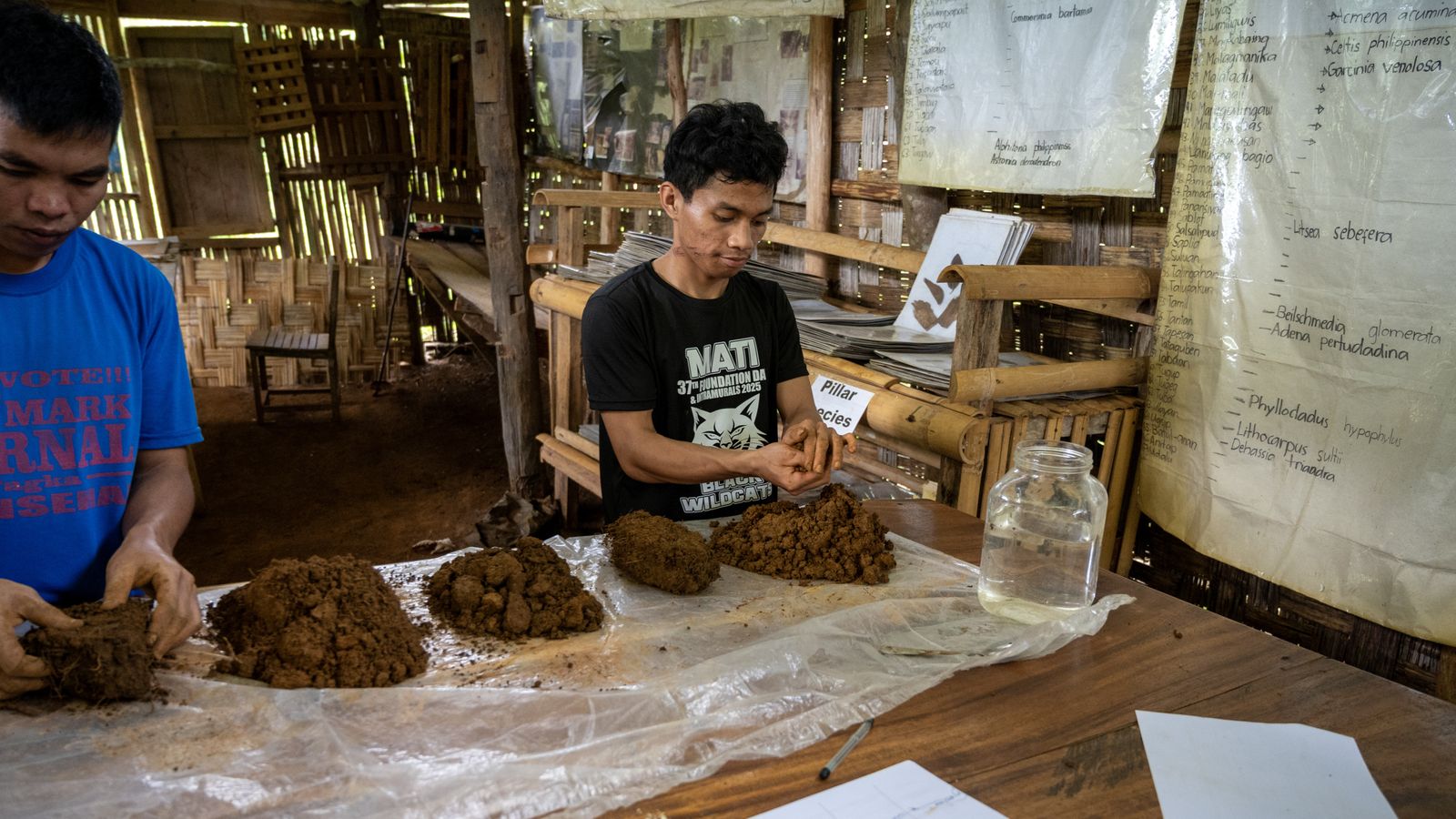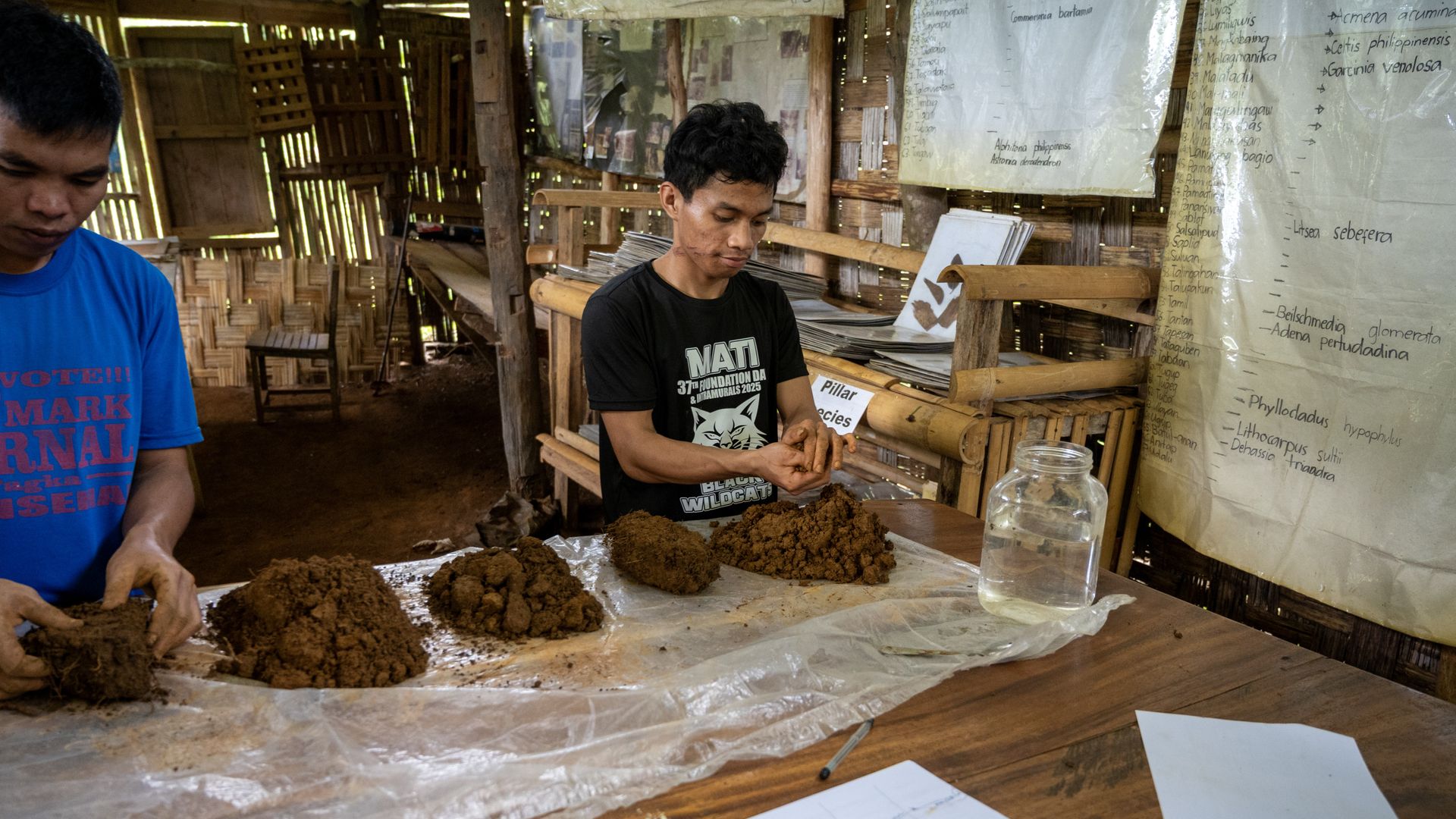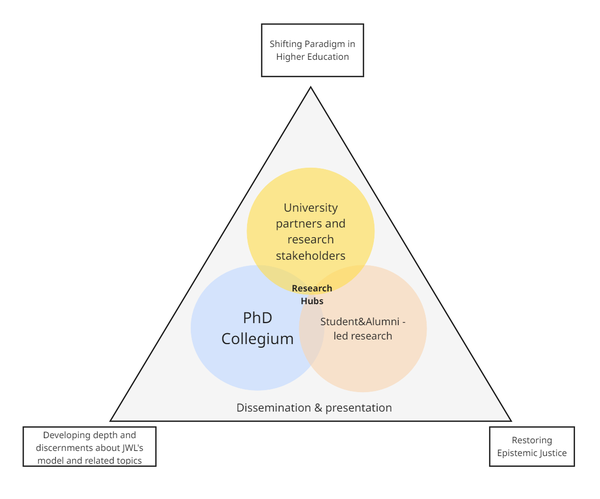
Research
Research is an essential part of Jesuit Worldwide Learning's educational mission. JWL believes that knowledge grows richer and more meaningful when it includes perspectives from communities that have often been overlooked epistemically and have been socially, economically and politically marginalised. By supporting research rooted in lived experience, we aim to contribute to a more just and inclusive understanding of the world.
Through student-led research, collaboration with our global network of scholars, and a dedicated PhD Colloquium, JWL provides opportunities for learners to explore questions that matter to them and their communities. Research at JWL encourages reflection, critical thinking, and dialogue—skills that help learners thoughtfully engage with the complexities of their lives and the wider world.
By documenting and studying JWL's blended learning model, we aim to share insights that can support higher education in diverse and challenging contexts. We see research as a way to listen, to learn together, and to accompany one another in the pursuit of knowledge that respects dignity, fosters understanding, and contributes to the common good.

Objective
To create and support local student-led research hubs that enable learners to design and conduct their own research projects, from ideation to dissemination, with the necessary tools, mentorship, and funding.
Rationale
Students enrolled in JWL programmes bring rich lived experience and insight into the challenges and opportunities within their communities. However, mainstream academic knowledge continues to be shaped by epistemic biases that exclude the voices of marginalised populations. By establishing student-led research hubs, JWL fosters spaces where students generate knowledge that reflects their contexts, builds on their priorities, and directly contributes to local and global conversations on justice, peace, development, and sustainability.
The JWL PhD Colloquium provides a space for doctoral students committed to education at the margins to share knowledge, develop relevant research, and engage in collective reflection to help understand theoretical and practical foundations of the field of Higher Education at the Margins.
Current members are:
Dr. Armando Borja, Doctor of Education (Ed.D.), Boston College, USA
Orville De Silva SJ, tbd
Mélodie Honen-Delmar, PhD Education, University of Geneva, Switzerland
Desire Patience Iraguha, PhD Education in Emergencies, University of Nairobi, Kenya
Maurizio Lopez, Doctor of Education (Ed.D.), Boston College, USA
Anna Mayr, PhD Technology, Innovation, and Cohesive Societies, Donau University Krems, Austria
Dennis Momanyi, PhD Education in Emergencies, University of Nairobi, Kenya
Magdalena Nauderer, PhD Philosophy, Munich School of Philosophy, Germany

Blended Learning and Impact
JWL’s unique approach to higher education blends digital learning with local, in-person support, making quality education accessible in contexts affected by conflict, displacement, or limited infrastructure. Rooted in Ignatian pedagogy, this blended model fosters not only academic growth but also personal and social transformation.
Research on the JWL model explores both its delivery methods and its long-term impact. This includes understanding how learners apply their skills in real-life settings, how communities benefit from education at the margins, and how to continuously adapt our pedagogy to meet diverse needs. By studying its model, JWL seeks to improve practice, contribute to the global conversation on inclusive education, and ensure its programmes remain both meaningful and effective.




